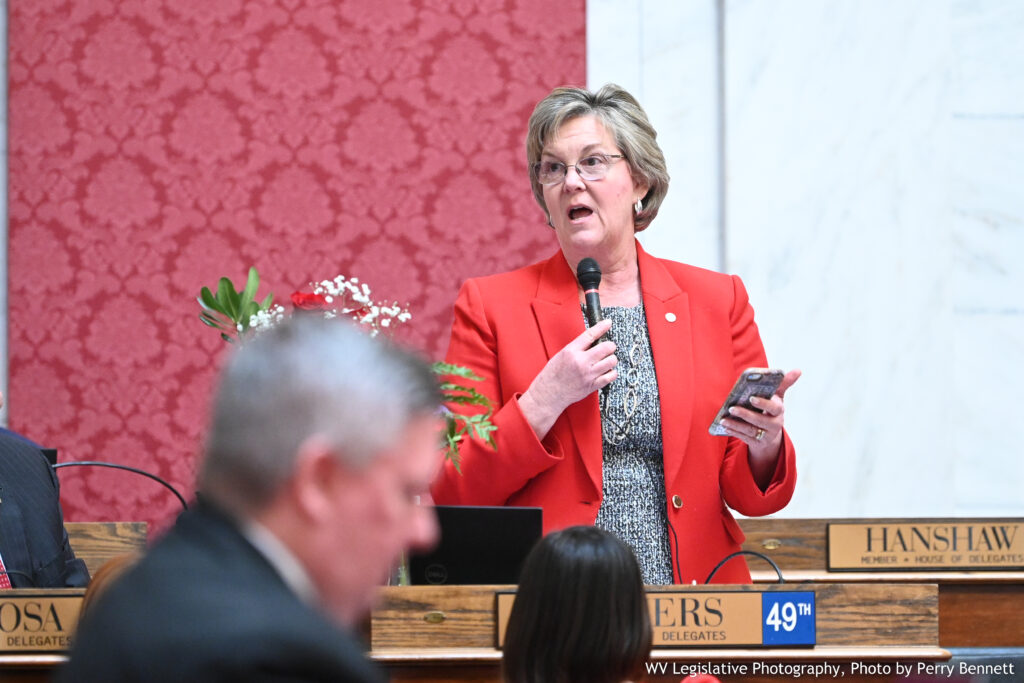After the West Virginia House of Delegates heard stories about healthcare provider misconduct and foster families not getting their subsistence funds, the proposal to split the state Department of Health and Human Resources (DHHR) into three cabinet positions was up for a final vote Tuesday.
House Health Committee Chair Del. Amy Summers, R-Taylor, introduced House Bill 2006, a proposal to divide the DHHR into the Department of Health, the Department of Human Services and the Department of Health Care Facilities, effective Jan. 1, 2024.
Last year, Gov. Jim Justice vetoed a bill to divide DHHR in two. Summers said HB 2006 incorporates findings from the Justice-ordered McChrystal Report.
The bill also requires DHHR leaders, before the split, to implement a plan to streamline administrative services and reduce overall costs.
Del. Mike Pushkin, D-Kanawha, was one of many in the chamber who called the bill a good first step. Pushkin detailed troubling allegations that he said demanded an organizational change.
“Just last week, we received emails and calls from foster and kinship families who are not receiving their rent payments. Those are the ones helping to take care of children that nobody else will take care of. This morning, we received messages from adoptive parents who aren’t receiving their subsistence checks,” Pushkin said. “People’s checks are bouncing, people are not able to pay their bills, the folks who are stepping up in this state and opening up their homes to children who are in state custody. We’re not taking care of it. We had a bill that went through the other day to give tax breaks for these families. And now we’re failing to take care of the people who are stepping up to take care of children that need help in this state. If this bill helps that, then we should all vote for it.”
Summers closed comment on the bill by answering the “why” regarding the need to split up and closely monitor a DHHR division. She highlighted studies that show decades of DHHR crisis mismanagement, organizational conflicts, a lack of budget transparency – all accentuated by troubling stories heard over a year of interviews.
“A consumer was repeatedly sprayed with a water hose getting around compliance with staff directions. A consumer overdosed on a staffers medication and died,” Summers said. “A consumer had her shirtsleeves tied in and out so she couldn’t use her hands for 24 hours a day except to get a shower. Three staffers withheld CPR for one of their clients, and the person died. A consumer requiring secondary supervision was able to get to a facility vehicle and they crashed and died in a fiery car. The list goes on and on.”
HB 2006 passed 95 to 3 and goes to the Senate for consideration.
The House received a similar bill, Senate Bill 126, on the first day of the session. There is no word yet on whether a conference committee from both chambers will be formed. A House representative told West Virginia Public Broadcasting lawmakers and staff on both sides will have to review and talk.
Public Hearing For Campus Carry Bill
On Wednesday, Feb. 15 at 9 a.m., the House Judiciary Committee will host a public hearing on SB10, the Campus Self-Defense Act, in the House Chamber.
Public sign-ups to speak will begin at 8:30 a.m. Wednesday in the chamber. This will be a 60-minute hearing, with speaker times determined by how many sign up to speak.




















